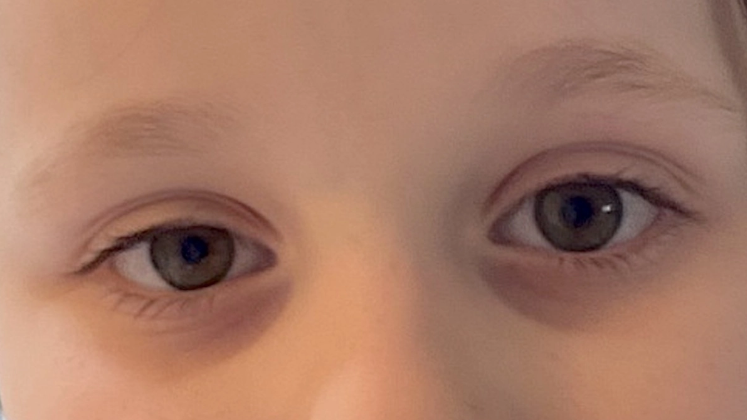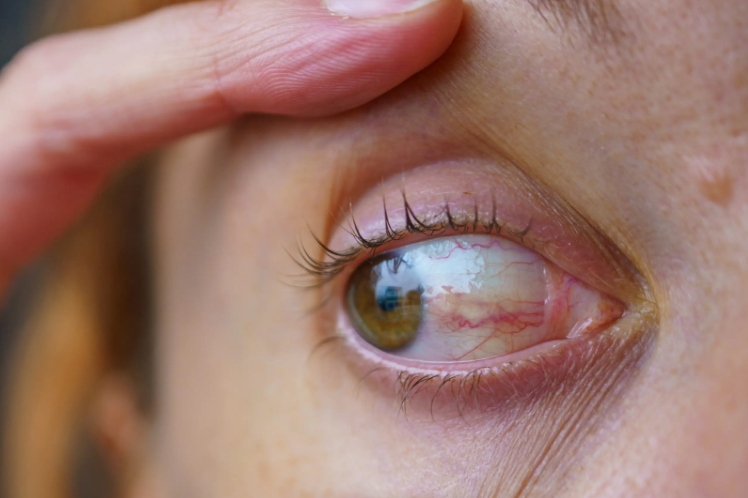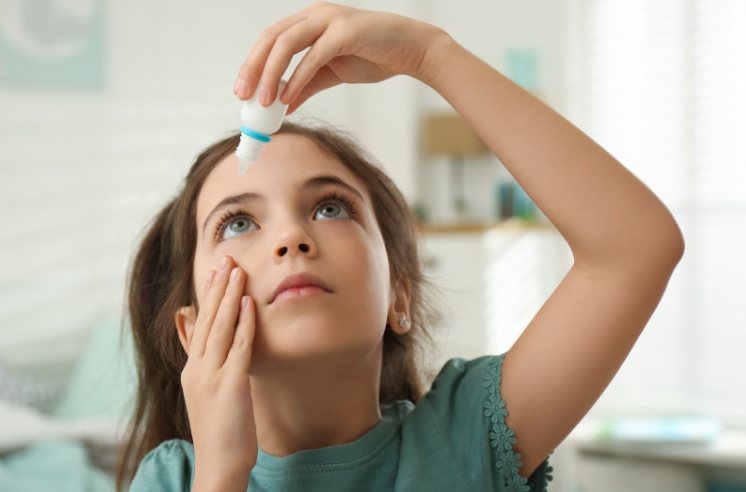How Sleep Affects Your Vision & What You Can Do About It.
- Urband Creative
- 12 minutes ago
- 3 min read

A good night’s sleep does more than just boost your mood and energy levels—it’s also essential for your eye health. When you don’t get enough rest, your eyes don’t get the time they need to recover and recharge. This can lead to dryness, strain, and even long-term vision problems. Let’s explore how sleep affects your vision and what you can do to keep your eyes healthy.
The Link Between Sleep and Eye Health
Your eyes work hard throughout the day, focusing on screens, adjusting to different lighting conditions, and staying alert. Sleep gives your eyes the chance to rest and recover. Without proper sleep, your eyes may experience:
1. Increased Eye Strain & Fatigue

When you're sleep-deprived, your eye muscles don’t get the necessary rest. This can lead to:
Difficulty focusing – Your eyes may struggle to adjust between near and far distances.
Light sensitivity – You may find bright lights more irritating than usual.
Headaches & discomfort – Eye strain can contribute to tension headaches.
2. Dry & Irritated Eyes

Sleep helps regulate tear production, which keeps your eyes lubricated. When you don’t get enough rest:
Your tear production decreases, leading to dry, itchy, and red eyes.
You may experience a burning sensation or a feeling of something in your eye.
3. Dark Circles & Puffiness

Lack of sleep affects blood circulation, leading to:
Dark circles under the eyes.
Puffy, swollen eyelids, making your eyes feel heavy and tired.
4. Blurred Vision

If you’ve ever pulled an all-nighter and noticed blurry vision the next day, that’s because your eyes weren’t able to properly recover. Sleep deprivation can cause temporary focusing issues, making it harder to see clearly.
5. Increased Risk of Eye Conditions

Long-term sleep deprivation can contribute to more serious eye conditions, such as:
Glaucoma – A condition that can lead to vision loss due to increased eye pressure.
Myokymia – Involuntary eye twitching, which can be triggered by lack of sleep.
How to Improve Sleep & Protect Your Eyes
The good news? You can take simple steps to improve your sleep quality and keep your eyes in top shape.
1. Follow a Consistent Sleep Schedule

Try to go to bed and wake up at the same time every day. Aim for 7-9 hours of sleep to give your eyes the rest they need.
2. Reduce Screen Time Before Bed

Blue light from screens can interfere with melatonin production, making it harder to fall asleep. Try to:
Avoid screens at least one hour before bedtime.
Use blue light filters or night mode on your devices.
Blink more often when using screens to prevent dry eyes.
3. Stay Hydrated

Dehydration can contribute to dry eyes and discomfort. Make sure to drink enough water throughout the day to keep your eyes hydrated.
4. Use Artificial Tears if Needed

If your eyes feel dry or irritated, lubricating eye drops can help restore moisture.
5. Get Enough Natural Light

Spending time outdoors in natural sunlight helps regulate your sleep-wake cycle, improving sleep quality and eye health.
Using Eyelet’s Sunplus can help your child get all the benefits from the sun, while protecting their eyes from it! Interested? Check out our Product Page
6. Keep Your Sleep Environment Comfortable

Make your bedroom dark and cool to promote better sleep.
Use blackout curtains to block out excessive light.
Avoid caffeine or heavy meals before bedtime.
Give Your Eyes the Rest They Deserve
Your eyes work hard every day, and sleep is their time to recover. By prioritizing rest, you can reduce strain, improve focus, and keep your vision sharp for years to come.
Want more eye care tips? Stay tuned for more helpful blogs on our website!

Comments